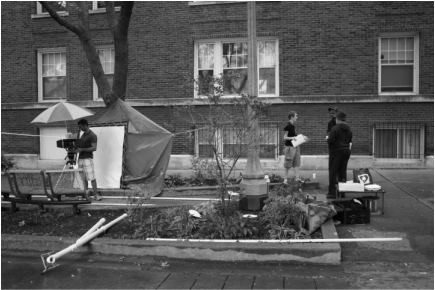|
Frequently Asked Questions:
What if I have time gaps in my schedule or course? The great thing about these courses is that they are designed to fit around your schedule. If you need longer than a week per assignment, that is completely fine. There is no extra cost for drawn out courses or for gaps in assignments. Am I guaranteed success? Like every role in the film business, success is never guaranteed. You are guaranteed quality courses, a finished product, and guidance as to where you should pitch your scripts. Are there refunds for unfinished courses? There are no refunds, but credits are available and transferable to others (if needed). Is there a discount if I sign up for the feature after the short course? There is a discount available, inquire towards the end of your course for more details and pricing. |
Why Write a Screenplay and What Next?
Passion and dreams aside, why do we write? And what do we do with our finished writing products after we’ve hit the save button or put down our pen? For some, sharing their work with friends or family is enough. Then there are some who just put their work in a book on a shelf and that is the last life those letters and words ever see. But for the majority of writers, they want their work to be seen or recognized. As a Screenwriter, the greatest compliment or accomplishment is having someone enjoy your work so much that they want to produce and/or film it. Writing a screenplay is a process. First you have your idea, then you go through the writing period, and even after you think you’ve reached the last page there are the many edits that follow. After all that when you feel like you have a polished product, it’s time to pitch your work, or film it yourself. So now the questions arise; “Where do I pitch my work and how do I get someone to film it?” A great place to start for new writers trying to get their foot in the door is Pitch Fests. These are yearly events held by top companies where producers, directors, and filmmakers with various budgets attend looking for their next project to film. They do cost money to attend, but look at it as an investment in your screenwriting career and future. These events are great for networking and getting your work recognized. There are no guarantees at these events, but if you have a solid script, a strong logline, and a flawless pitch there is no reason why you can’t walk away from one of these events with phone numbers, personal contacts, and several offers in your pocket. Take that next step! InkTip PitchFest and The Great American PitchFest are among the top in the country to look into. To polish your script, for script coverage, or to start writing your first page, feel free to contact us or sign up for one of our courses! We would love to help turn your idea into a finished product. |
|
Loglines: Just as Important as the Script
A logline is a one sentence summary of your entire script. It should introduce the scenario, the main character, and have a hook. This one sentence alone is what can attract or lose a producer, director, or filmmaker to reading your work. So what makes a good logline? First, it has to be able to embody the essence of the script without getting too wordy or using a lot of conjunctions. You should introduce the character with a one word description, state the conflict that will arise for the character within the story, and then imply how the conflict may or may not be resolved. This must all be explained in a sentence, so the wording you choose is very important. A good logline could lead to inquiries and a treatment or script request. Being a Screenwriter, you learn that to pitch your work effectively you can’t give long-winded descriptions or expect every person that comes along to read the entirety of the screenplay. You have to cast out the logline as bait, have a strong synopsis that hooks someone enough to envision and want the movie itself, and then reel in the outcome – good or bad. |
Wrote a script, now what?
Writing a screenplay itself takes lots of work, time, and thought. When the script if finished though, the work still isn’t over yet. If you want your script read or seen by directors and/or producers, you need to have a Pitch Package. In a Pitch Package you need a logline, a brief 3-5 sentence paragraph that sums up the entire screenplay, and a 3-5 page treatment that tells and outlines the story (or essence) of the script. You will also need to be able to pitch verbally your entire screenplay in under two minutes. The verbal pitch should include the logline, a tag line, why you think that script is worth filming, and what the overall meaning or message is that is trying to be conveyed over the entire screenplay. If the verbal pitch goes well, then you have potential for your Pitch Package to be viewed and more questions to follow. Some of the questions will include: What actors or actress do you see as the characters? What other films could you compare this script to Genre wise? What kind of budget would you foresee this film needing? When starting a new screenplay you can already be thinking about these things and considering the answers, this will make the post script writing process smoother and less time consuming. To learn more about these things and how to write a proper Treatment, Logline, or Pitch, sign up for the 5-Week Short Course or the 9-Week Feature Course! We cover not only the basics, but all of the essentials! |
|
8 Tips How to be a Better Writer
Sometimes it’s not enough to just write, you gotta push yourself in new and challenging ways to get better at what you do.
|
Looking to Have Your Script Produced?
Let us help you take your career to the next level! The Independent Screenwriters also produce short films. At the end of all of our screenwriting courses this will be one of the options to move your script forward that we discuss. Let us help you turn that script into a film festival entry! If you already know what festivals you'd like to submit to, you are welcome to discuss this with your instructor at the start of the course. If not, we can help you explore your options when the course is done! This option is one of the many added features our program has that many others don’t. Most other online screenwriting courses abandon you after you have a final product. Not us! We want you to see success as a result of working with us, and we will make that happen! Only by going to an expensive Film School or being very well connected do you get to opportunity to see your script produced. Yet The Independent Screenwriters offers this option as part of their screenwriting program! So don't wait. Get on the ball and let us help you write that award-winning script! |







